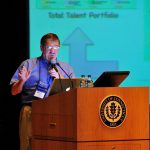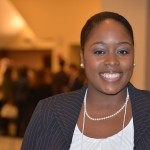“Distance learning with elementary students is an entirely different experience from working with them in-person,” says Kimy Velasquez, a Neag School education student. “Everything I imagined my internship to me is different from what I expected. Despite this, there are still opportunities to learn and grow as an upcoming teacher in this new environment.”
Since the beginning of COVID-19, millions of students nationwide have been forced into online learning. Many of those experiences have been negative because of schools’ lack of preparation, because of some faculty not considering student needs, and because of financial stresses. Online learning is especially affecting students majoring in sciences, education, and the fine arts; international students and students living in different time zones; students from low-income families and students with disabilities.
“Online learning must ensure the quality and equity of student learning,” says Jia Cai, a first-year student in the Neag School of Education’s Higher Education and Students Affairs master’s program. “Classes cannot be taught in a way that fits solely the institution’s convenience and preferences. Do not let the inequity that already exists in our higher-education system continue to haunt students with disadvantages in an online environment.”
The Neag School 2019-20 By the Numbers Report gives a high-level overview of the School’s highlights, points of pride, and accomplishments over the course of the 2019-20 academic year.
Congratulations to our Neag School alumni, faculty, staff, and students on their continued accomplishments inside and outside the classroom. If you have an accolade to share, we want to hear from you! Please send any news items and story ideas to neag-communications@uconn.edu.
Each of the Neag School’s 2020 Alumni Award honorees represent the best and brightest in their field. It is our privilege to celebrate all that they have accomplished through their careers and their service to the community.
Joseph Renzulli served as founding director of the Neag Center, the Lynn and Ray Neag Endowed Chair for Talent Development, as well as the first director of the National Research Center on the Gifted and Talented (NRC/GT), then one of a dozen centers in the U.S. focused on addressing significant issues in the education of gifted and talented students, and enrichment education. Under Renzulli’s guidance, the Neag Center evolved into one of the leading centers in gifted education and talent development in the world.
Since the 1900s, U.S. public schools have employed a growing number of school resource officers (SROs) – defined here as sworn law enforcement officials. In 1975, only 1% of schools reported having police officers on site, but by 2018, approximately 58% of schools had at least one sworn law enforcement official present during the school week.
On Oct. 7, the University of Connecticut’s Women and Philanthropy Network hosted an event centered around the conversations of six panelists and how their different groups and backgrounds affect them in their areas of expertise. The discussion was moderated by Manisha Sinha, the Draper Chair in American history at UConn, and included panelists Socheth McCutcheon (UConn Law ‘06), Meghana Shah (UConn Law ‘04), Chauntay Mickens (UConn CLAS ‘10), Amy Lin-Meyerson (UConn Law ‘94) and Luz Burgos-Lopez (Neag School of Education).
In 2020, the deaths of Ahmaud Arbery, George Floyd, Breonna Taylor, and others led to a resurgence of the Black Lives Matter movement across the nation and around the globe. The revitalization of this movement has come with increased public demand for policy change, and specific calls for anti-racist policies in schools. As a result, many educational leaders are grappling with what this means for their respective contexts, and the extent to which their school or district’s current policies measure up to public demand.







